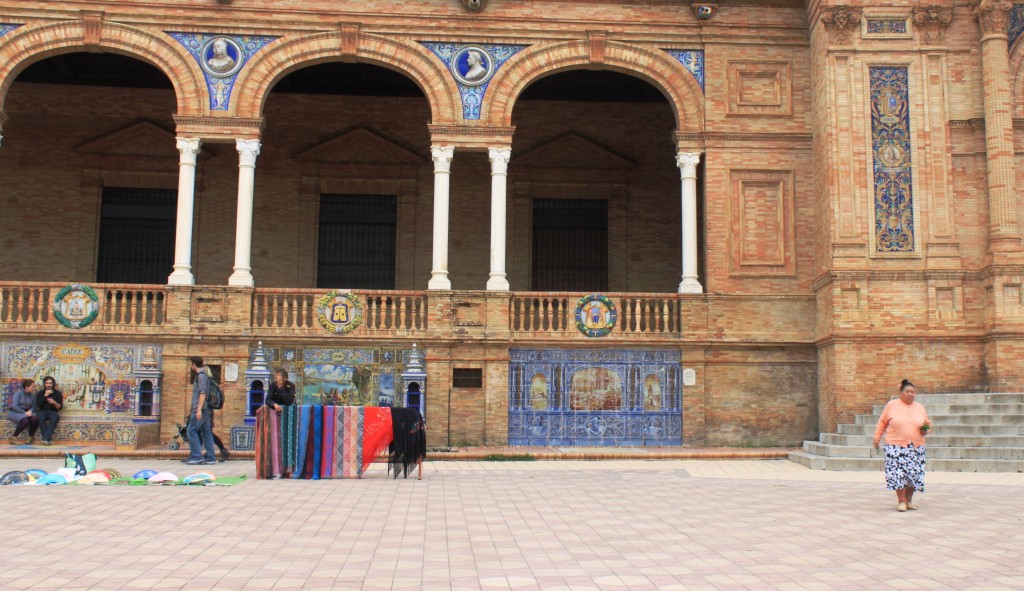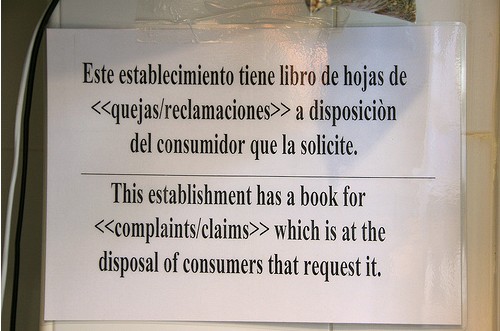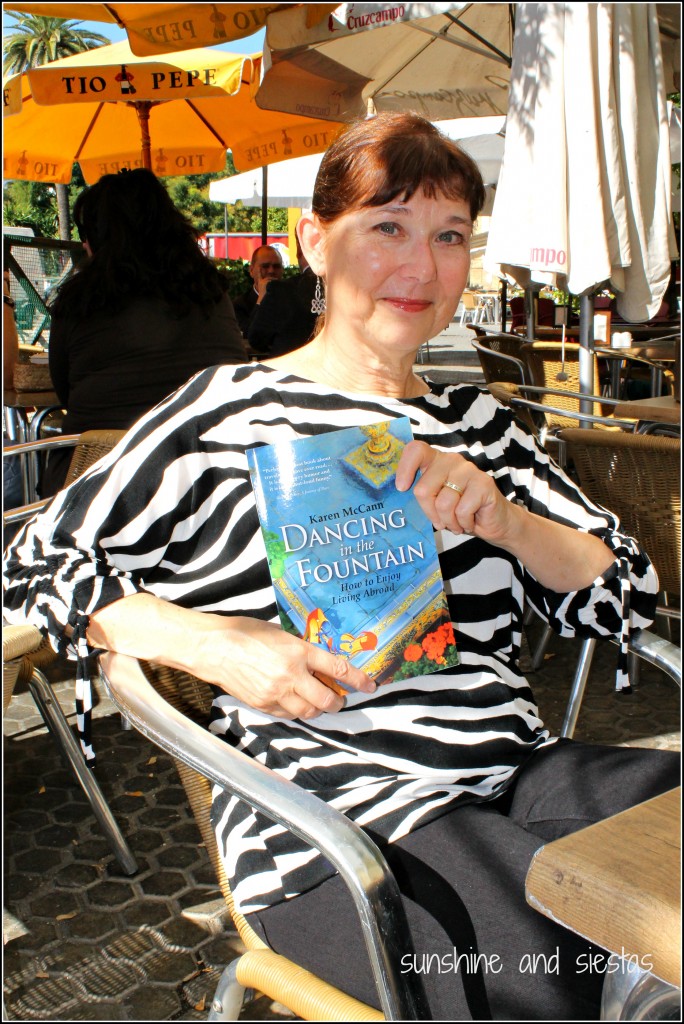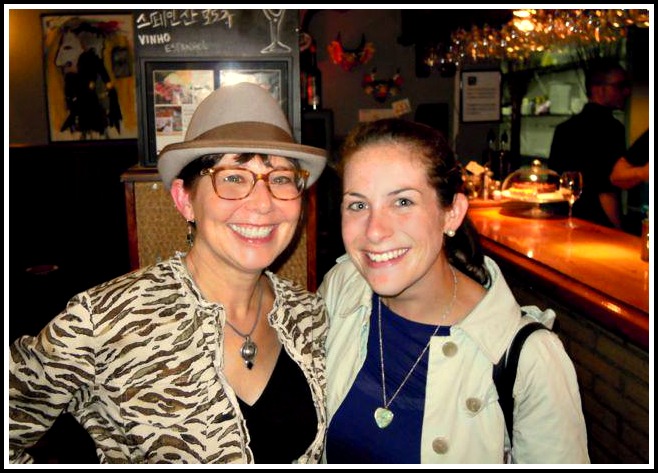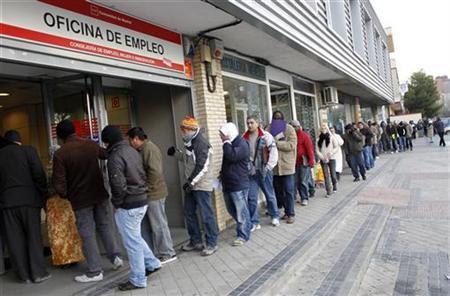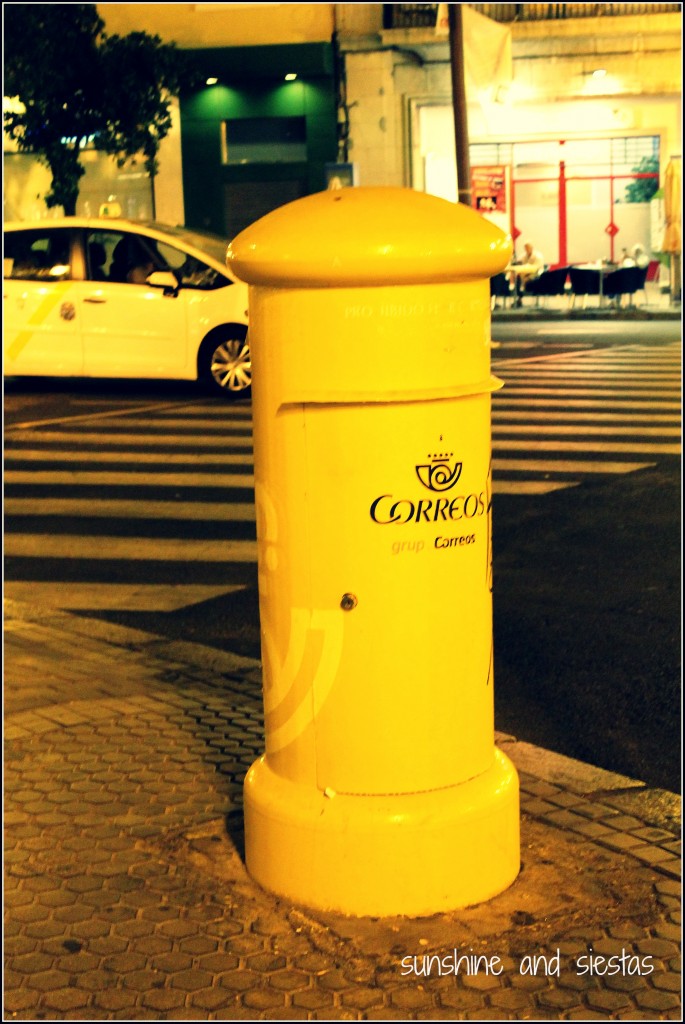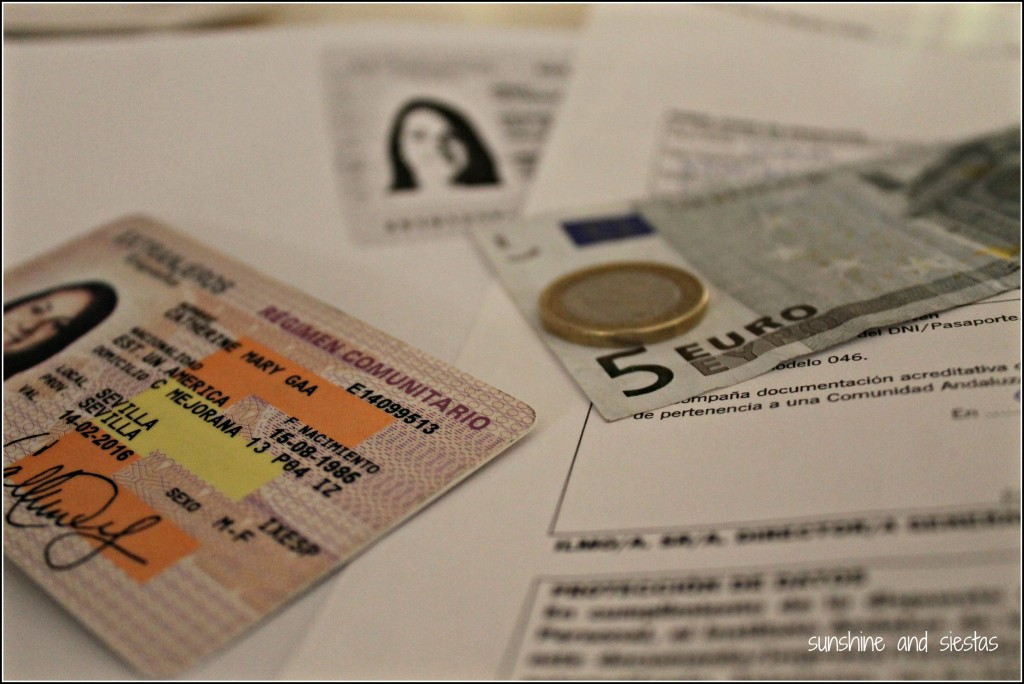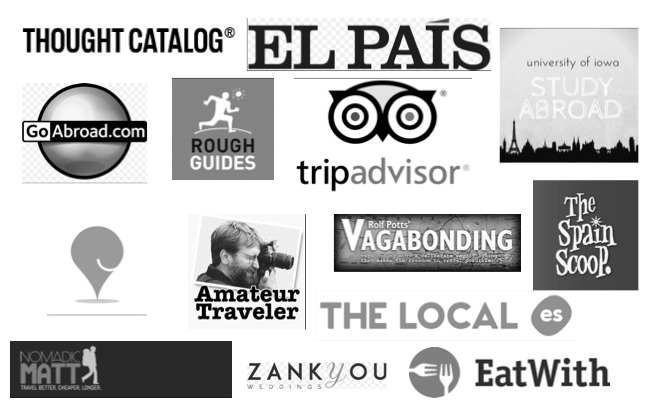The first (and one of very, very few) feeling I ever had of notoriety was from one Cassandra Gambill, who started following my blog way back before I knew theat people were actually reading. Naturally, I was thrilled when she chose to come to Spain a few years ago and blog about, so I gladly accepted her submission from her most recent trip to Seville.
Rediscovering Sevilla after a brief trip south in 2007, I had to rectify my image of this Andalusian town. When I had originally visited, preparations for the subway system left the city dirty and dusty. Whenever I saw photos of iconic Sevilla, I couldn’t recognize them as anything I’d seen, including the beautifully tiled Plaza de España.
Even though the day was overcast when I finally made it back to Sevilla, I immediately appreciated the grandeur and color of this sophisticated square. Speaking of color, there were plenty of local characters who also made the place a feast for the eyes and ears. In this corner alone there were lovey-dovey locals, backpacking-toting tourists, a scarf-and-abanico vendor, and a wandering woman hoping to plant rosemary sprigs on unsuspecting sightseers.
——–
Going on her third year in the Spanish capital, Cassandra Gambill is now working towards a Master’s in Bilingual Education at the Universidad de Alcalá de Henares. Her motto? Where there’s a will there’s a way, and where’s a puente, there’s a trip in the making.
You can follow Cassandra via her blog and twitter:
Blog: www.geecassandra.com
Twitter: https://twitter.com/
